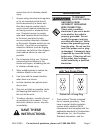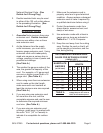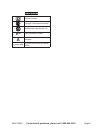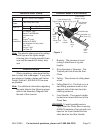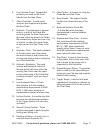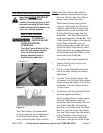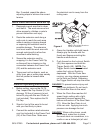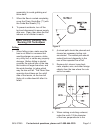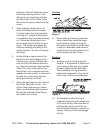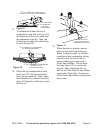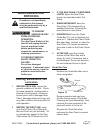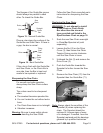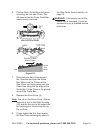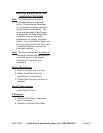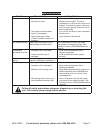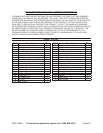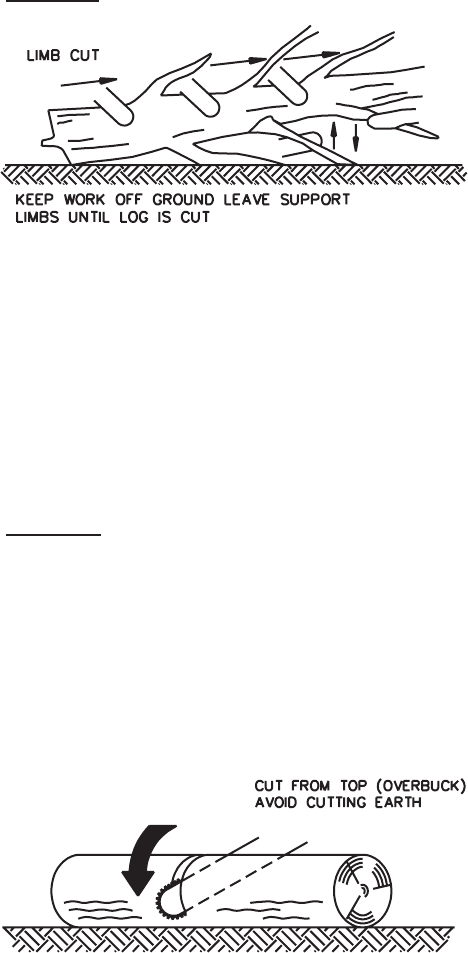
Page 15For technical questions, please call 1-800-444-3353.SKU 67255
direction of the fall. Make the lower
will help to avoid pinching of either
the Saw Chain or the Chain Guide
Bar when the second notch is being
made.
When making a 5. felling back cut,
make the felling back cut at least
2 inches higher than the horizontal
notching cut. Keep the felling back
cut parallel to the horizontal notching
cut. Make the felling back cut so
that enough wood is left to act as a
hinge. The hinge wood keeps the
tree from twisting and falling in the
wrong direction. Do not cut through
the hinge.
As the felling cut gets close to the 6.
hinge the tree should begin to fall.
If there is any chance that the tree
may not fall in the desired direction,
or it may rock back and bind the Saw
Chain (72), stop cutting before the
felling back cut is complete and use
wedges of wood, plastic, or aluminum
to open the cut and drop the tree
along the desired line of fall.
When the tree begins to fall, remove 7.
the Chain Saw from the cut. Turn
off the Chain Saw and put it down.
Then, use the retreat path planned.
Be alert for overhead limbs falling,
and watch your footing.
Limbing
Figure 7
8. When limbing (trimming) branches
from a fallen tree, leave the larger,
lower limbs to support the log off
the ground. Remove the small limbs
in one cut. Branches under tension
should be cut from the bottom up to
avoid binding the Saw Chain.
Bucking
Bucking9. a log is cutting a log into
lengths. It is important to make sure
is evenly distributed on both feet.
When possible, the log should be
raised and supported by the use of
limbs, logs, chocks or a timberjack.
Figure 8
10. To Overbuck is when the log is
supported along its entire length and
is cut from the top. Allow the Saw to
pull forward into the top of the log
until the Spiked Bumper contacts on
the log. Then pivot the saw through
the log.



